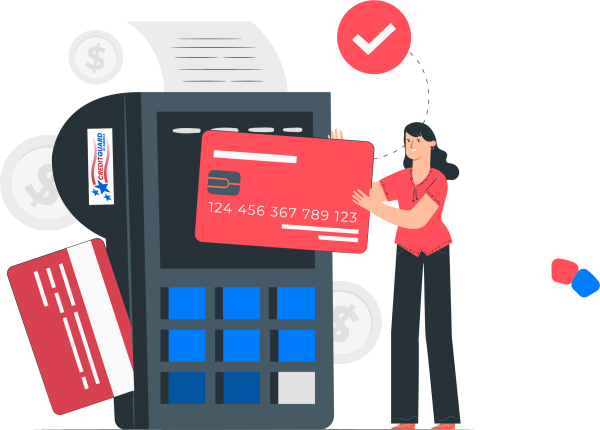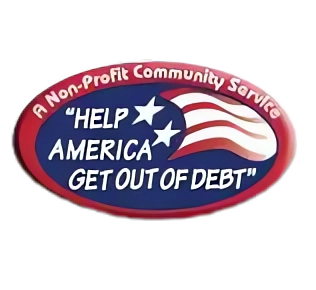In the complex world of financial management, CreditGUARD stands as a beacon of support. This non-profit organization specializes in debt management, providing an invaluable service to those struggling with debt. Their ultimate goal is to empower individuals, offering comprehensive tools, resources, and support to aid in managing and eventually eliminating debt. With CreditGUARD, consumers are given a platform to regain control over their financial lives and achieve stability and freedom from debt.

Non-profit debt management is an often misunderstood concept that serves as a lifeline for many individuals battling debt. The process involves agencies partnering with consumers to create a tailor-made plan to tackle their debts in a feasible and manageable manner. These agencies extend their services beyond simply facilitating debt repayment, offering financial counseling and education to equip individuals with the knowledge and skills needed to maintain financial stability in the future.
There exists a fundamental difference in the motivations of non-profit and for-profit debt management agencies. Non-profit agencies, like CreditGUARD, prioritize the consumer’s financial well-being, working tirelessly to ensure the most advantageous solutions for the consumer. In contrast, for-profit firms may be more inclined to prioritize their own profit margins. Understanding this crucial distinction is key to making informed decisions and choosing the right agency for your financial management needs.
The choice of non-profit debt management comes with a plethora of benefits. Lower interest rates, waived fees, and consolidated monthly payments make the process of repaying debt less daunting and more achievable. Moreover, these non-profit organizations offer the invaluable service of financial education and support. They aim to arm individuals with the knowledge and tools necessary to prevent falling into the debt trap again, ensuring long-term financial stability.
Credit counseling agencies are an essential piece of the debt management puzzle. They provide expert advice, effective tools, and strategic plans to help consumers navigate their debt landscape. These agencies, staffed with certified professionals, stand ready to guide individuals on their journey towards debt management and elimination, offering much-needed support and resources along the way.
Effective debt management reaches far beyond the individual level—it plays a crucial role in the broader economic landscape. By helping consumers achieve financial stability, non-profit debt management contributes to increased spending and economic growth. This stability allows for increased consumer confidence and spending, injecting vitality into the economy and contributing to the overall financial health of communities.

Recognizing the warning signs of financial strain is an essential step in proactively addressing debt. These red flags can include escalating debt levels, missed payments, and an overreliance on credit to meet daily expenses. Early detection and intervention can make a significant difference, allowing for a swift and effective response and paving the way for comprehensive debt management.
The road to financial freedom begins with understanding your debt situation. This means identifying the various types of debt you owe, their cumulative amount, and the associated interest rates and fees. This knowledge forms the foundation of your personalized debt management plan, providing a clear picture of your debt landscape and guiding your path towards debt elimination.
To make informed decisions and devise effective debt management strategies, you need to have a thorough understanding of your financial status. This entails meticulously organizing and evaluating all relevant financial information—your income, expenses, debts, and assets. With a holistic picture of your financial health, you’re better equipped to engage in effective financial planning and debt management.
Credit counseling services form an integral part of non-profit debt management. These services involve working closely with a certified counselor to analyze your financial situation and devise a strategic plan to manage and eliminate your debt. The counseling process extends beyond simple debt management, offering financial education and budgeting advice to foster sustainable financial habits and prevent future debt accumulation.
Debt consolidation is a strategic tool often used in debt management. By combining multiple debts into a single payment with a lower interest rate, the repayment process becomes significantly simpler and more manageable. This approach can save you money over time, reducing financial stress and accelerating your path towards becoming debt-free.
A Debt Management Plan (DMP) is a personalized strategy created in collaboration with a credit counselor. The DMP includes a structured repayment plan that factors in your unique financial situation, often resulting in lower payments and interest rates. DMPs provide a streamlined roadmap towards debt elimination, allowing individuals to manage their debt in an organized, strategic manner.
One of the advantages of professional debt management services is their ability to negotiate with creditors on your behalf. These negotiations can lead to reduced interest rates, waived fees, or in some cases, a reduction in the total debt owed. This step can significantly lighten the financial burden and make debt repayment more manageable.
Education is a powerful tool in the fight against debt. Non-profit debt management services often include financial education and budgeting guidance as part of their offerings. These resources equip individuals with the knowledge and tools they need to effectively manage their finances and avoid future debt problems. By promoting responsible financial behavior, these services contribute to long-term financial stability and independence.
Accreditation is a crucial hallmark of a reputable non-profit debt management agency. When choosing a debt management agency, it’s advisable to investigate if they hold any accreditations, and from which bodies. Accredited agencies are required to uphold specific standards of quality and ethics, providing an assurance of their credibility and dedication to professional conduct.
An agency’s reputation and track record often serve as reliable indicators of their effectiveness and reliability. One way to assess this is by checking online reviews and testimonials from previous clients. Their experiences can provide valuable insights into the agency’s customer service, effectiveness, and dedication to their mission. Additionally, consider seeking recommendations from trusted sources or financial advisors.
Transparency and ethics are non-negotiable in any financial endeavor, and non-profit debt management is no exception. Consumers should expect an agency to communicate clearly about the services they offer, their methods, and potential risks. Ethical agencies should also provide honest advice that serves the consumer’s best interest, even if it means recommending a different service or agency.

The first step towards signing up for a non-profit debt management program is an initial consultation. This is typically a meeting where an agency representative reviews your financial situation and understands your financial goals. Based on the gathered information, the agency can then create a customized debt management plan that caters to your unique needs.
Personalization is key to an effective Debt Management Plan (DMP). This involves tailoring the DMP to account for your specific debts, income, and expenses. The plan should provide a realistic strategy for repaying your debts, while still allowing you to meet your essential living expenses. The ultimate goal is to create a plan that is not only effective but also manageable and sustainable.
Before enrolling in a DMP, it’s essential to thoroughly understand its terms and conditions. The agency should explain the specifics of your payment schedule, the fees involved, and any potential changes to your accounts or payments that could occur as part of the plan. Before giving your consent, ensure that you fully understand and agree with all the plan’s terms.
Even though non-profit debt management programs are designed to help consumers, they can sometimes involve fees for their services. Prior to enrollment, the agency should clearly explain these costs, ensuring you are fully aware of what you’re agreeing to. This transparency is crucial to build trust and prevent any surprises later in the process.
Commitment is one of the most crucial aspects of effective debt management. It requires dedication and perseverance to stick to a DMP, especially during challenging times when the path to debt freedom seems long and arduous. Cultivating a positive mindset and focusing on the end goal can motivate you to stay committed to your DMP.
A crucial part of managing debt involves maintaining open and regular communication with your creditors. This can help prevent misunderstandings, ensure that all parties are on the same page, and foster good relations with your creditors. Regularly updating your creditors about your progress can also reassure them about your commitment to repaying your debts.
The journey to financial freedom is often a long one, and it’s important to acknowledge the progress you’ve made along the way. Regularly tracking your success and celebrating key milestones can provide motivation and reinforce the effectiveness of your efforts. Every debt cleared, no matter how small, is a step towards your ultimate goal.
Effective debt management extends beyond paying off current debts; it involves adopting sustainable changes to your lifestyle and financial habits. By learning to budget effectively, save consistently, and spend wisely, you can avoid falling back into debt in the future. These changes not only help you become debt-free but also set the foundation for long-term financial well-being.
When interacting with creditors and collection agencies, it’s vital to be aware of your rights. The Fair Debt Collection Practices Act (FDCPA) provides protections against abusive, unfair, or deceptive practices by debt collectors. Understanding these rights can help you navigate conversations with collectors and protect you from unscrupulous practices.
Interacting effectively with creditors and collection agencies can be crucial to your debt management journey. Open, honest communication about your financial situation can help foster understanding and may even lead to more favorable payment arrangements. Ensure you keep all communication records as they could be useful in case of any disputes.
Negotiating with creditors can be an effective strategy for managing your debts. If done skillfully, you may be able to secure more favorable payment terms or even convince your creditors to accept a reduced settlement. While negotiation can be tricky, a reputable debt management agency can guide you through the process or negotiate on your behalf.
Regrettably, scams are a common hazard in the debt collection industry. It’s important to stay vigilant and be aware of common warning signs, such as demands for payment on a debt you do not recognize or threats of immediate legal action. By educating yourself about these scams, you can protect your financial health and progress towards your debt-free goal.
Once you’ve successfully completed a debt management plan, it’s time to assess your credit situation. By reviewing your credit score and report, you can identify any existing problems that need to be addressed and acknowledge the progress you’ve made during your journey. This is an integral part of moving forward, ensuring that you’re aware of your financial standing and preparing you for any future credit requirements.
Rebuilding credit is an essential part of financial recovery post-debt management. Here, we will discuss several effective tactics for rebuilding your credit score. These could range from ensuring timely payments to maintaining a low credit utilization ratio, diversifying credit types, and more. These tactics are designed to aid you in creating a strong and resilient credit profile over time.
Having overcome a challenging period of debt management, it’s crucial to avoid falling back into a cycle of debt. Cultivating positive financial practices such as sticking to a realistic budget, prioritizing savings, and conducting regular self-audits of your financial situation can fortify your financial health and avert future debt problems.
Continuous monitoring of your credit status is a proactive approach to managing your financial health. By regularly reviewing your credit reports, you can promptly identify and rectify any discrepancies, maintain an accurate credit profile, and also, track your progress towards rebuilding credit.
There are multiple governmental resources and aid programs designed to support citizens facing financial hardships. These programs can provide relief, guidance, and tools to help navigate the complexities of debt management. Leveraging these resources can significantly aid your debt management journey.
The digital era provides a myriad of tools and apps designed to make financial management more manageable. We will discuss various digital tools and budgeting applications that can help with tracking expenses, creating realistic budgets, managing debts, and working towards your financial goals.
Financial literacy is the cornerstone of effective debt management. Through counseling seminars and educational programs, you can enhance your understanding of personal finance, equipping you with the knowledge to make informed decisions and manage your finances effectively.
Debt management can often feel like an isolating journey. Support networks and community initiatives can provide much-needed emotional support, camaraderie, and practical advice to help you navigate the process. Connecting with people who share similar experiences can be immensely comforting and empowering.
Debt management, particularly through non-profit entities, often raises numerous questions. This section will address common queries about non-profit debt management, providing clarity, and dispelling doubts to facilitate a smoother debt management journey.
If you’re availing of CreditGUARD’s services, you may have specific questions about the processes, methods, or tools. We will provide clear answers to these user-centric queries, ensuring you can make the most of your debt management program.
Financial terminology can often seem overwhelming. This section aims to demystify complex financial and debt management jargon, breaking down these terms into simple, comprehensible language. Making this process more accessible and less intimidating for those without a background in finance.
Reflecting on the advantages of non-profit debt management can reinforce its value and the importance of maintaining good financial habits. By reviewing these benefits, we hope to motivate you to stay committed to achieving and maintaining financial health.
In conclusion, we aim to inspire and embolden you to take control of your financial destiny. Remember, the road to financial freedom may be long and challenging, but with perseverance and discipline, you can overcome debt and create a secure financial future. Stay committed to your financial goals, and don’t hesitate to seek help when needed.

By providing your information, you consent and request to be contacted by CreditGuard and/or our member(s) to your phone, cell phone, email, text/SMS, and through the use of pre-recorded messages and automated dialing technology at the number(s) listed above even if your number provided on the form above is on a State, National or Corporate Do Not Call List. You are not required to purchase any goods and/or services. Standard carrier and messaging rates will apply.
"I am so grateful for my experience with Credit Guard of America. I frequently had to call with questions and concerns and they were always so helpful and kind. I had to speak with Eric a lot, I’m assuming he’s a part of management, and it was always a pleasure. They made it easy to pay off accounts and do extra payments. All 5 of my credit accounts are now paid and I couldn’t have done it without this program. I was happy to recommend them to one of my closest friends! "

CreditGuard provides a Debt Management, Debt Counseling and Financial Education Services for consumers for over 30yrs, we have reduce a consumers overall debt up to 50%, while lowering or eliminating interest and late fees, along with re-aging of their accounts.
Reputable and established Debt Counseling Company operating since 1991, licensed in all 50 states. Currently located in Fort Lauderdale, Florida.
Input your search keywords and press Enter.